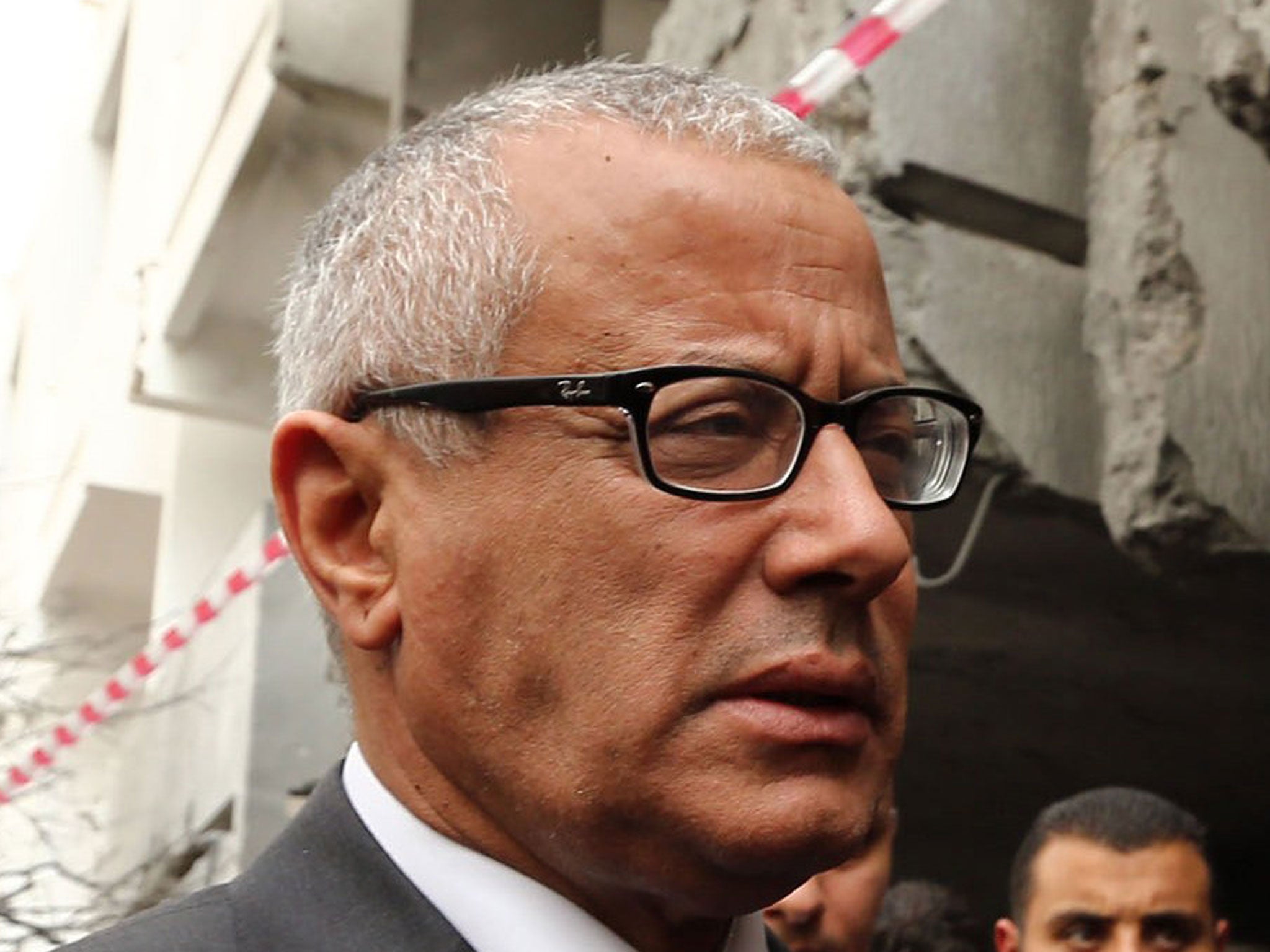Libya Prime Minister Ali Zeidan kidnapped: What is the background? And what are the papers saying?

Your support helps us to tell the story
From reproductive rights to climate change to Big Tech, The Independent is on the ground when the story is developing. Whether it's investigating the financials of Elon Musk's pro-Trump PAC or producing our latest documentary, 'The A Word', which shines a light on the American women fighting for reproductive rights, we know how important it is to parse out the facts from the messaging.
At such a critical moment in US history, we need reporters on the ground. Your donation allows us to keep sending journalists to speak to both sides of the story.
The Independent is trusted by Americans across the entire political spectrum. And unlike many other quality news outlets, we choose not to lock Americans out of our reporting and analysis with paywalls. We believe quality journalism should be available to everyone, paid for by those who can afford it.
Your support makes all the difference.The brief kidnapping of Libyan Prime Minister Ali Zeidan has highlighted the power of militiamen in the country, and served as reminder that Libya's conflict did not end with the withdrawal of Western forces following the ousting of Gaddafi in 2011.
What has happened since 2011?
The liberal National Forces Alliance won power in July 2012, beating into second place the Libyan wing of the Muslim Brotherhood, the Party for Justice and Construction. Since then militiamen have firmed up control of many areas outside of Tripoli, and instances of violence go far beyond the most reported in the Western media - the killing of US ambassador Chris Stevens by jihadi militiamen.
In May 2013 the British Foreign Office withdrew embassy staff amid ongoing fears about deteriorating security in the country, as militiamen besieged parliament demanding that anybody who worked for government under Gaddaffi be immediately expelled.
Patrick Cockburn, writing for Independent Voices, warned earlier this year that "a lack of interest" in Libya was ignoring increasing human rights abuses.
"The New York-based Human Rights Watch produced a detailed report on the ethnic cleansing of the town of Tawergha where 40,000 people were forced out of their homes and subjected to 'arbitrary detentions, torture, and killings'. The largely black population has been targeted as supporters of Gaddafi by militias from Misrata."
In October US Special Forces kidnapped Abu Anas al-Liby in Libya, who is suspected of belonging to Al-Qaeda and planning the bombing of two US embassies in 1998.
What are the papers saying now?
In Reuters, Suleiman Al-Khalidi reports:
"Libya sounds like a country on the verge of splitting into a jigsaw of rebellious enclaves each with their own government, militias and, importantly, their own share of OPEC member Libya's oil."
But federalism is a long way off yet, adds Al-Khalidi:
"Rather than a widespread popular movement, Libya's autonomy protests have grown out of Tripoli's lack of control, tribal loyalties and a series of unresolved local grievances over security, corruption and poor services that have festered since the 2011 revolution."
The most pressing risk is that these protests drive Libya "deeper into chaos", with a "weak government paralyzed by inertia and armed militias".
Al-Jazeera comments on the rise of al-Qaeda in the territory:
"lt now appears that Libya, in particular southern Libya, has become a new base for al-Qaeda fighters. It is an area largely out of the reach of Libya's poorly equipped and unorganised security forces".
Patrick Cockburn's latest analysis for Independent Voices is available here.
"This should all be causing less surprise than is now being expressed internationally.
The Libyan revolution of 2011 was always something of a phoney, not in the sense that Gaddafi was popular, but in the pretence that he had been overthrown by an armed opposition of Libyans and with NATO only playing a subsidiary role"
Join our commenting forum
Join thought-provoking conversations, follow other Independent readers and see their replies
Comments